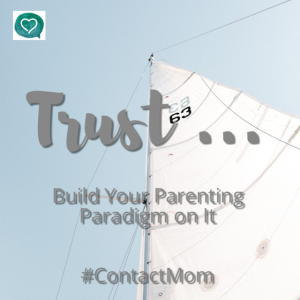Thanksgiving Traditions
posted in: Community, Family, Family Identity
0
I grew up loving holidays. My mom decorated the house, made special food, and created memories that tied me back to my family even when I had a family of my own. When it was my turn to make those memories, I wanted to communicate the spiritual significance of the holidays, in addition to all the fun activities I remembered.
Typically, November is a month we focus on gratefulness in our family. With thoughts of Thanksgiving, harvest time, and the Pilgrims all around us, we choose activities to develop gratefulness in each of our hearts. Here are some of our favorite ideas:
- Some years I drew a large tree on a piece of butcher paper and cut out colorful leaves from construction paper. Starting on the first of November, we each wrote something we were grateful for on a leaf and attached it to our tree poster. As Thanksgiving Day approached, our tree was full of the many leaves our eight family members added daily.
- A friend’s family uses different colored sticky notes for each family member to daily write something they are grateful for and post on a sunny window to create a beautiful stain glass window effect in their home.
- I love to review my calendar and journal during November to remember what God has done in the past year including answered prayers, ways I’ve grown, and special memories to be thankful for. This review also contributes to our annual family Christmas letter written in December and is a special family tradition we share at Christmas time.
- Do you have favorite foods that make you remember past Thanksgivings and family gatherings? We usually have the same foods year after year for Thanksgiving, and even included the menu in the cookbook we assembled for my mother’s 70th It helps to have everyone contribute to the food preparations. As new family members are added when our children get married, I ask people to bring something they enjoyed in their family when they were growing up. If you have a large family gathering, I’ve found that Meal Train’s potluck sign up makes planning easier. (www.mealtrain.com)
- In remembrance of the Pilgrims’ second Thanksgiving following a winter where their daily ration of food was supposedly 5 kernels of corn (and no one died of starvation), I place 5 kernels of corn on each guests’ plate (often I use candy corn which delights the children) and ask them to share 5 things they are grateful to God for this year while we eat our meal.
- Through the years, we have read aloud stories that focused on gratefulness or Thanksgiving and the Pilgrims. It’s an opportunity to communicate to my children God’s faithfulness during trials.
- When my children were 4-10 years old and liked to dress up in costumes, we had Pilgrims and Indians dressed for the occasion at our table.
- Reach out to others: Helping someone else as a demonstration of our gratefulness was a yearly activity.
* November is Samaritan’s Purse’s collection for the Christmas shoebox ministry. We liked filling a shoebox. Some years we were even able to work at a collection center to gather the shoeboxes in the region.
* Fill a basket with food for a needy family you know or join a community effort to help those less fortunate than you.
* Invite someone who would otherwise be alone to celebrate Thanksgiving with your family.
You never know when an activity will become meaningful to your children in the future. One year my mother was looking for a creative way to get rid of her pumpkins. She decided to have a pumpkin roll down the hill to the creek of their property. Now she gathers neighbors’ leftover pumpkins and the day after Thanksgiving each family member rolls a pumpkin down the hill hoping to hear it splash in the creek below. Laughter fills the air and squeals echo back as each one watches the erratic path of his pumpkin rolling down the hill through the trees to the creek. Each grandchild has introduced the tradition to their significant other and now to their children. I anticipate someone will continue this fun tradition even after my parents are no longer here to lead it. It’s part of our family identity and tradition.
my mother was looking for a creative way to get rid of her pumpkins. She decided to have a pumpkin roll down the hill to the creek of their property. Now she gathers neighbors’ leftover pumpkins and the day after Thanksgiving each family member rolls a pumpkin down the hill hoping to hear it splash in the creek below. Laughter fills the air and squeals echo back as each one watches the erratic path of his pumpkin rolling down the hill through the trees to the creek. Each grandchild has introduced the tradition to their significant other and now to their children. I anticipate someone will continue this fun tradition even after my parents are no longer here to lead it. It’s part of our family identity and tradition.
If you are new to the idea of creating family traditions for your family, start small. Choose one thing that would be meaningful to you. Let your spouse know that this is important to you so that he will help encourage family participation.
Making a memory today strengthens relationships for a lifetime. When our activities foster the passing along of our values to our children, we are not just filling time, we are molding hearts, filling their moral warehouses, and establishing lifelong ties.
If you have ideas to share that your family enjoys, please add them in the comments below.



